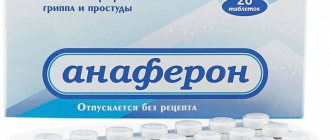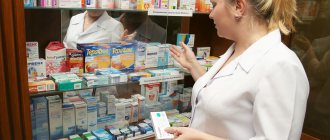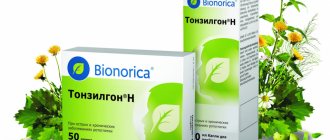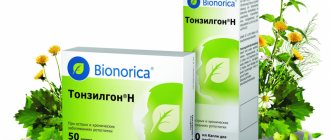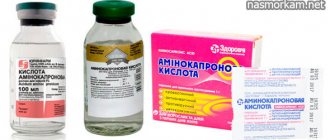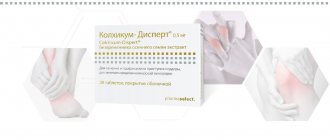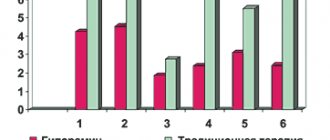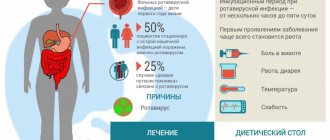Treatment of cardiovascular pathologies involves a whole range of medications aimed both at maintaining the functioning of the heart muscle and at preventing relapses. The drugs Cardiomagnyl, Trombital and Thrombo Ass are the most common for the use of these disorders. Which one is better according to cardiologists is indicated below.
Description of Trombital
The tablets are produced in Russia; they contain 2 main components - acetylsalicylic acid and magnesium hydroxide. They have an antithrombotic and antiaggregation effect. A favorable result is achieved by influencing platelets. The medicine inhibits the process of thromboxane synthesis, as a result of which their activity in connecting with the walls of blood vessels decreases. The adhesion to each other is also inhibited, which prevents the formation of blood clots. The result is noticeable within a week of use.
Properties of Trombital:
- Acetylsalicylic acid has a positive effect on the cardiovascular system. Treatment with the drug reduces mortality in myocardial infarction.
- Prothrombin time increases, the intensity of prothrombin production in the liver and the concentration of coagulation factors decreases.
- Additional qualities: has antipyretic, anti-inflammatory, analgesic effect. Enhances the excretion of uric acid.
The disadvantage of Trombital is its adverse effect on the mucous membrane of the gastrointestinal tract.
To prevent the risk of complications, a second substance was added to the composition - magnesium hydroxide.
Main indications for taking tablets:
- prevention of pathologies of the heart and arteries;
- unstable angina;
- prevention of blood clots;
- decreased likelihood of recurrent myocardial infarction;
- prevention of thromboembolism after capillary surgery.
You should not take Trombital under 18 years of age, during pregnancy, lactation, with heart failure, intestinal or cerebral hemorrhages, sensitivity to constituent substances, liver or kidney disorders, or bronchial asthma.
Comparison of Trombital and Cardiomagnyl
Similarities
First of all, the medications have identical composition.
The dosage of active components is the same. Due to this, the same side effects appear.
Indications for use and contraindications for Trombital and Cardiomagnyl are also the same. If for some reason the first drug is not suitable for the patient, then it is not recommended to change it to a direct analogue, since in this case hypersensitivity may also develop.
The medications have identical composition. The dosage of active components is the same. Due to this, the same side effects appear.
Difference
Trombital is produced in the form of film-coated tablets, which reduces the degree of negative impact on the mucous membranes of the stomach and intestines.
Cardiomagnyl is available in uncoated tablets, and acetylsalicylic acid has a more aggressive effect on the gastrointestinal tract.
Which is cheaper?
There is a difference in cost. Considering that both products are produced in Russia, their price is low. Trombital can be purchased for 115 rubles. (tablets contain a minimum dosage of active substances; there are 30 of them in a package). The price of Cardiomagnyl is 140 rubles. (30 pieces per package with a minimum dosage of active ingredients).
Characteristics of Thrombo Ass
The antiplatelet agent reduces the intensity of blood clotting, additionally preventing thrombosis. The main component is acetylsalicylic acid, 1 tablet. contains 100 mg of the component. Auxiliary properties - reduction of temperature, pain, inflammation.
The blood thinning effect of aspirin has a positive effect on patients with varicose veins, reduces the risk of cancer, and is used during preeclampsia. Thrombo Ass improves the flow of blood, which passes through small vessels without difficulty. The drug is approved for continuous use, but the therapeutic regimen should be discussed with a cardiologist/surgeon.
Indications for use of Thrombo Ass:
- restoration of cerebral circulation in the presence of ischemic heart disease;
- heart attack prevention;
- prevention of thrombosis, embolism.
The drug is gentle on the body, so it is suitable for patients with a susceptible stomach. The following can be noted as negative actions and contraindications:
- peptic ulcers of the gastrointestinal tract;
- hemophilia, increased bleeding, hypothrombinemia;
- limited to persons under 18 years of age and during lactation.
Use in the 1st-2nd trimester of pregnancy is acceptable, but combination with other medications (anticoagulants, glucocorticoids, diuretics) is prohibited. Adverse effects include dizziness, dyspeptic disorders, changes in the menstrual cycle, bronchospasm, and iron deficiency anemia. It is allowed with great caution in patients with liver and kidney failure. But all this can be avoided if the dosage is followed correctly.
Features of Cardiomagnyl
Cardiomagnyl is also an antiplatelet agent, but has the widest spectrum of action due to its chemical composition. The medicine is produced in the form of tablets (75 mg and 150 mg). The main substance is acetylsalicylic acid, which functions in combination with magnesium hydroxide, and it is the viscosity of the blood and the heart muscle that is affected. The mechanism of action is determined by preventing the connection of platelets. The price of the drug ranges from 140-300 rubles.
Magnesium protects the gastric mucosa, reducing the risk of adverse effects of acetylsalicylic acid on the condition of the organ.
Cardiomagnyl is prescribed in the following cases:
- prevention of various stages of heart attack;
- acute heart failure;
- angina pectoris;
- heart surgery;
- preventive measures for thrombosis and embolism.
Cardiomagnyl has a huge number of contraindications: increased bleeding, peptic ulcers, kidney and liver failure. You should not take the drug in the 1st and 3rd trimester of pregnancy, during lactation, or before the age of 18.
The medication is incompatible with anticoagulants, methotrexate, and dioxin. Also not used along with valproic acid, hypoglycemic substances. With an increased dosage of Cardiomagnyl, urticaria, vomiting, heartburn, worsening peptic ulcer disease, Quincke's edema, bronchospasm, a decrease in the number of leukocytes, platelets in the blood, dizziness, and anaphylactic shock may develop.
Trombital or Cardiomagnyl
In terms of composition, number of active components, indications and limitations, Trombital and Cardiomagnyl are analogues. Similarities of medicines:
- identical composition of medications;
- the content of the main substance is equal, which leads to the same negative manifestations;
- contraindications and purposes are similar; If one drug does not work, there is no point in replacing it with another.
Pharmacologically and for safety reasons, the drugs have equal characteristics. The only advantage of Trombital in relation to Cardiomagnyl is its reduced cost. The difference in price is insignificant, both drugs are manufactured in Russia, Trombital sells from 157 rubles, Cardiomagnyl - from 209 rubles.
Medicines are recommended as a preventive measure, without leading the cardiovascular system to a pathological state. Medicines are used both for independent treatment and along with other means. Trombital is often prescribed to people with vascular disorders, and Cardiomagnyl is effective in preventing thrombosis, heart attack, and stroke. The benefits of taking both drugs are high.
Comparison table of advantages and disadvantages
It is best to take Trombital or Cardiomagnyl after prior consultation with a physician or cardiologist. The table below shows the main advantages and disadvantages of these drugs.
Trombital or Cardiomagnyl
| Advantages of Trombital and Cardiomagnyl | Disadvantages of these drugs |
| Helps prevent recurrent myocardial infarction | They cause a large number of side effects, most of which are dangerous to the human body. |
| Promotes blood thinning | They have a large number of contraindications |
| Provides prevention of thrombosis | To achieve a sustainable and positive result, they require long-term use over several weeks and months. |
| They speed up the process of postoperative rehabilitation following coronary artery bypass grafting. | They cause a change in the cellular composition of the blood towards a reduction in the number of platelets. |
| They are antiplatelet drugs that are available for purchase by most citizens with average income levels. | They reduce the performance of the kidneys and can also cause their functional failure. |
Before purchasing Cardiomagnyl or Trombital, you must study in detail the instructions for use of these medications, consult with your doctor, and only then purchase one of these medications.
Cardiomagnyl or Thrombo Ass
Reviews from doctors about Thromboassa and Cardiomagnyl are positive. Doctors prescribe both drugs, indicating their mild effect compared to simple Aspirin. Some believe that the difference is only in the cost of drugs.
What are they suitable for:
- Cardiomagnyl
- an effective remedy that copes with cardiovascular pathologies with a convenient dose. Magnesium hydroxide contained in the drug neutralizes gastric juice, which is secreted in excess in patients with gastrointestinal disorders. Both medications are effective in eliminating thrombosis. - Thrombo Ass
is an excellent prevention of ischemia and heart attack. However, both drugs have a beneficial effect in the treatment of thrombophlebitis and venous embolism. The frequency of side effects in relation to acetylsalicylic acid in pure form is significantly lower with drugs.
Thrombo Ass has a soluble coating that instantly dissolves in the intestines, which allows you to reliably protect the digestive tract. The composition of Cardiomagnyl includes acetylsalicylic acid and magnesium hydroxide. This element reduces acidity and has a beneficial effect on the stomach. Prevents the formation of pain, vomiting, nausea, burning sensation in the sternum.
The safety of both medications lies in the reliability of the protective shell of Trombo Ass and in the effective functioning of magnesium hydroxide in the second product. If the film of the first is not broken, then the medicine is safe for the gastrointestinal tract. Cardiomagnyl does not cause problems, since the second substance neutralizes acetylsalicylic acid.
Patient reviews
Marina, 29 years old, Stary Oskol
I took Cardiomagnyl. A good drug, inexpensive, effective. I did not complete the course of treatment because my condition improved significantly. I can’t say anything about any side effects, because in my case there were no complications.
Olga, 33 years old, Yaroslavl
I took Trombital Forte (with the maximum dosage of active substances). There were side effects: sleep disturbance, headache, dizziness, nausea. I switched to Trombital with a minimum dose of the main components. She underwent the course of treatment without complications.
Effective drug analogues
The following drugs are analogues of Cardiomagnyl, Thrombo Ass, Trombital. Many of them have different active components, but the properties and purposes are identical. Of course, the price category of the drugs also differs.
Table with effective medications:
| A drug | Active substance | Manufacturer | Price in rubles |
| Aspirin Cardio | acetylsalicylic acid | Germany | From 80 |
| Thrombogard | acetylsalicylic acid | Bulgaria | From 50 |
| Thrombopol | acetylsalicylic acid | Poland | From 39.50 |
| Asparkam | potassium and magnesium aspartate | Russia | From 48 |
| Acecardole | acetylsalicylic acid | Russia | From 25 |
| Panangin | potassium and magnesium aspartate | Hungary | From 121 |
| Fasostabil | acetylsalicylic acid + magnesium hydroxide | Russia | From 165 |
| Clopidogrel | clopidogrel | Russia | From 400-670 |
| Brilinta | ticagrelor | Sweden | From 2500 |
| Trental | pentoxifylline | India | From 429 |
| Aspecard | acetylsalicylic acid | Belarus | From 27 |
After a thorough analysis of blood thinning drugs with different active substances, it is clear that in this field there is an extensive list of medications that are indicated for patients with different disorders.
Acecardol is an antiplatelet agent
One tablet of Acecardol contains 50/100 mg of the main element - acetylsalicylic acid. Excipients: magnesium stearate, talc, povidone, starch. High doses of the drug exhibit an antipyretic and analgesic effect. The component is completely absorbed into the digestive canal and is only partially metabolized during absorption. The price of Acecardol is cheap and amounts to 25 rubles. for 50 mg.
What is Acecardol used for:
- unstable angina;
- prevention of recurrent myocardial infarction;
- prevention of deep vein thrombosis;
- warning of pulmonary embolism;
- disorder of the blood supply to the brain to prevent ischemic stroke;
- after invasive procedures and vascular operations to prevent thromboembolism (stenting, bypass surgery).
The tablets are contraindicated for people with erosive and ulcerative pathologies of the gastrointestinal tract, hemorrhagic diathesis, hemorrhages from the duodenum, and stomach. Bronchial asthma, provoked by the use of salicylates, becomes a limitation. It is also prohibited in case of heart failure, liver failure, or during lactation. Compatibility with methotrexate at a dose of more than 15 mg per 7 days is not acceptable. The use of Acecardol is not allowed for patients with gout, nasal polyposis, or drug allergies. Acetylsalicylic acid is often the cause of bleeding during operations.
Fasostabil - analogue of Cardiomagnyl, Trombital
The main substance of Fazostabil is acetylsalicylic acid, magnesium hydroxide. In essence, the mechanism of action of ASA is the irreversible inhibition of cyclooxygenase, as a result of which thromboxane synthesis is suppressed and platelet aggregation is inhibited. The second component in the composition exhibits an antacid effect and protects the mucous membrane of the digestive tract from the negative effects of ASA.
What does Fazostabil help with:
- prevention of secondary myocardial infarction, thrombosis of blood arteries;
- unstable angina;
- prevention of thromboembolism after capillary operations;
- primary prevention of heart pathologies.
How much to take, what is the dosage:
- In order to prevent a recurrent heart attack, only 1 tablet is required. per day in the amount of 75-150 mg;
- angina pectoris - 1 tablet. in the morning or evening;
- prevention of thromboembolism also involves 1 tablet. per day.
When Fazostabil is used simultaneously with valproic acid, narcotic analgesics, and metatrexate, their interaction increases, which increases the likelihood of toxicity. Adverse reactions are possible when used together with thrombolytic and hypoglycemic drugs, heparin and other antiplatelet medications. Alcohol should not be taken along with Fazostabil; it reduces the effect of the medication and can lead to complications. The price of the drug in Russian pharmacies is from 165 rubles. per package.
- Trombital, RU LP-004177
- Trombital tablets No. 30, Trombital tablets No. 100
- Trade name of the drug: Trombital
International nonproprietary or group name: Acetylsalicylic acid + [Magnesium hydroxide]
Dosage form: film-coated tablets
Composition per tablet:
Active ingredients: acetylsalicylic acid - 75.00 mg, magnesium hydroxide - 15.20 mg.
Excipients: microcrystalline cellulose - 12.07 mg, corn starch - 9.50 mg, potato starch - 2.00 mg, magnesium stearate - 0.15 mg.
Shell: hypromellose (hydroxypropyl methylcellulose 15 cP) - 0.60 mg, macrogol (polyglycol 4000) - 0.12 mg, talc - 0.36 mg.
Description: Round, biconvex tablets, film-coated, white or almost white; on cross-section, the core is white or almost white.
Pharmacotherapeutic group: Antiplatelet agent
ATX code: B01AC30
Pharmacological properties
Pharmacodynamics Reduces platelet aggregation, adhesion and thrombus formation by suppressing the synthesis of thromboxane A2 in platelets. The antiplatelet effect persists for 7 days after a single dose (more pronounced in men than in women).
Acetylsalicylic acid reduces mortality and the risk of myocardial infarction in unstable angina, is effective in the primary prevention of diseases of the cardiovascular system, especially myocardial infarction in men over 40 years of age, and in the secondary prevention of myocardial infarction.
Suppresses the synthesis of prothrombin in the liver and increases prothrombin time. Increases the fibrinolytic activity of blood plasma and reduces the concentration of vitamin K-dependent coagulation factors (II, VII, IX, X). Increases the risk of hemorrhagic complications during surgical interventions, increases the risk of bleeding during anticoagulant therapy.
Acetylsalicylic acid in high doses also has an anti-inflammatory, analgesic, and antipyretic effect.
In high doses, acetylsalicylic acid stimulates the excretion of uric acid (impairs its reabsorption in the renal tubules).
Blockade of cyclooxygenase-1 in the gastric mucosa leads to inhibition of gastroprotective prostaglandins, which can cause ulceration of the mucous membrane and subsequent bleeding.
Magnesium hydroxide, which is part of the drug Trombital, protects the mucous membrane of the gastrointestinal tract from the effects of acetylsalicylic acid.
Pharmacokinetics Acetylsalicylic acid is absorbed from the gastrointestinal tract almost completely. The half-life of acetylsalicylic acid is about 15 minutes, because with the participation of enzymes, acetylsalicylic acid is quickly hydrolyzed into salicylic acid in the intestines, liver and blood plasma. The half-life of salicylic acid is about 3 hours, but it can increase significantly with the simultaneous administration of large doses of acetylsalicylic acid (more than 3.0 g) as a result of saturation of enzyme systems.
The bioavailability of acetylsalicylic acid is 70%, but this value fluctuates significantly, since acetylsalicylic acid undergoes presystemic hydrolysis (gastrointestinal mucosa, liver) into salicylic acid under the action of enzymes. The bioavailability of salicylic acid is 80-100%.
The doses of magnesium hydroxide used do not affect the bioavailability of acetylsalicylic acid.
Indications for use
Primary prevention of cardiovascular diseases such as thrombosis and acute heart failure in the presence of risk factors (for example, diabetes mellitus, hyperlipidemia, hypertension, obesity, smoking, old age).
Prevention of recurrent myocardial infarction and blood vessel thrombosis.
Prevention of thromboembolism after vascular surgery (coronary artery bypass grafting, percutaneous transluminal coronary angioplasty).
Unstable angina.
Contraindications
- Hypersensitivity to acetylsalicylic acid, excipients of the drug and other non-steroidal anti-inflammatory drugs (NSAIDs);
- bleeding in the brain;
- tendency to bleeding (vitamin K deficiency, thrombocytopenia, hemorrhagic diathesis);
- erosive and ulcerative lesions of the gastrointestinal tract (in the acute phase);
- gastrointestinal bleeding;
- bronchial asthma induced by taking salicylates and other NSAIDs;
- complete or incomplete combination of bronchial asthma, recurrent nasal polyposis and paranasal sinuses with intolerance to acetylsalicylic acid or other NSAIDs, including cyclooxygenase-2 inhibitors (including a history);
- simultaneous use of methotrexate at a dose of 15 mg per week or more;
- pregnancy (I and III trimesters);
- breastfeeding period;
- deficiency of glucose-6-phosphate dehydrogenase;
- severe renal failure (creatinine clearance (CC) less than 30 ml/min);
- severe liver failure (class B and C on the Child-Pugh scale);
- chronic heart failure of functional class III and IV according to the NYHA classification;
- children under 18 years of age.
Carefully
For gout, hyperuricemia, since acetylsalicylic acid in small doses reduces the excretion of uric acid.
If there is a history of ulcerative lesions of the gastrointestinal tract or gastrointestinal bleeding.
For liver failure (class A on the Child-Pugh scale).
In case of renal failure (creatinine clearance more than 30 ml/min).
For bronchial asthma, chronic respiratory diseases, hay fever, nasal polyposis, allergic conditions, drug allergies.
In the second trimester of pregnancy.
For diabetes mellitus.
In elderly patients.
With the proposed surgical intervention (including minor ones, for example, tooth extraction), because acetylsalicylic acid may cause bleeding for several days after taking the drug.
When taken simultaneously with the following drugs (see section “Interaction with other drugs”):
- with methotrexate at a dose of less than 15 mg per week;
- with anticoagulants, thrombolytic or antiplatelet agents;
- with NSAIDs and salicylic acid derivatives in large doses;
- with digoxin;
- with hypoglycemic agents for oral administration (sulfonylurea derivatives) and insulin;
- with valproic acid;
- with alcohol (alcoholic drinks in particular);
- with selective serotonin reuptake inhibitors;
- with ibuprofen,
- with lithium preparations,
- with systemic glucocorticosteroids,
- with ethanol,
- with narcotic analgesics,
- with sulfonamides,
- with carbonic anhydrase inhibitors.
Use during pregnancy and breastfeeding
Salicylic acid penetrates the placental barrier.
The drug Trombital is contraindicated for use in the first and third trimesters of pregnancy, because has a teratogenic effect - when used in the first trimester of pregnancy, it leads to the development of cleft palate in the fetus; in the third trimester, it causes inhibition of labor (suppression of prostaglandin synthesis), premature closure of the ductus arteriosus in the fetus, hyperplasia of the pulmonary vessels and hypertension in the pulmonary circulation.
Taking the drug in the second trimester is possible only if the potential benefit to the mother outweighs the risk to the fetus.
Acetylsalicylic acid and its metabolites pass into breast milk. Breastfeeding should be stopped during treatment.
Directions for use and doses
The drug is taken orally, once a day, with water. The tablet can be swallowed whole, chewed or pre-grown.
Primary prevention of cardiovascular diseases, such as thrombosis and acute heart failure in the presence of risk factors (for example, diabetes mellitus, hyperlipidemia , arterial hypertension, obesity, smoking, old age) : take 2 tablets of Trombital on the first day, then 1 tablet 1 time per day.
Prevention of recurrent myocardial infarction and thrombosis of blood vessels: 1-2 tablets of the drug Trombital 1 time per day.
Prevention of thromboembolism after surgery (coronary artery bypass grafting, percutaneous transluminal coronary angioplasty ): 1-2 tablets of Trombital once a day.
Unstable angina: 1-2 tablets of Trombital 1 time per day. For faster absorption, it is recommended to chew the first tablet.
The drug is intended for long-term use. The duration of treatment and dose of Trombital is determined by the doctor.
Use the drug only according to the indications, method of administration and in the doses indicated in the instructions.
Side effect
The adverse events listed below are distributed according to the frequency of occurrence in accordance with the following gradation: very often (with a frequency of more than 1/10), often (with a frequency of at least 1/100, but less than 1/10), infrequently (with a frequency of at least 1/10) 1000, but less than 1/100), rare (with a frequency of at least 1/10,000, but less than 1/1000), very rare (with a frequency of less than 1/10,000), including individual reports.
From the blood and lymphatic system: very often - increased bleeding (hematomas, nosebleeds, bleeding gums, bleeding from the genitourinary tract); rarely - anemia; very rarely - hypoprothrombinemia, thrombocytopenia, neutropenia, aplastic anemia, eosinophilia, agranulocytosis; unknown frequency - leukopenia. There have been reports of serious bleeding events, which include gastrointestinal bleeding and cerebral hemorrhage (especially in patients with arterial hypertension who have not achieved target blood pressure values and/or receiving concomitant anticoagulant therapy), which in some cases can be life-threatening character. Bleeding can lead to the development of acute or chronic posthemorrhagic/iron deficiency anemia (for example, due to hidden bleeding) with corresponding clinical and laboratory signs and symptoms (asthenia, pallor, hypoperfusion). There are reports of cases of hemolysis and hemolytic anemia in patients with severe forms of glucose-6-phosphate dehydrogenase deficiency.
Allergic reactions: often - urticaria, Quincke's edema; uncommon - anaphylactic reactions, including angioedema; unknown frequency - skin rash, itching, rhinitis, swelling of the nasal mucosa, cardiorespiratory distress syndrome, as well as severe reactions, including anaphylactic shock.
From the nervous system: often - headache, insomnia; infrequently - dizziness, drowsiness; rarely - tinnitus, intracerebral hemorrhage; unknown frequency - hearing loss, which may be a sign of a drug overdose (see section "Overdose").
From the respiratory system, chest and mediastinal organs: often - bronchospasm.
From the gastrointestinal tract : very often - heartburn; often - nausea, vomiting; infrequently - pain in the abdomen, ulcers of the mucous membrane of the stomach and duodenum, including perforated ones (rarely), gastrointestinal bleeding; rarely - increased activity of liver enzymes; very rarely - stomatitis, esophagitis, erosive lesions of the upper gastrointestinal tract, strictures, irritable bowel syndrome, colitis; unknown frequency - decreased appetite, diarrhea.
From the urinary system: unknown frequency - impaired renal function and acute renal failure.
If you experience the side effects listed in the instructions , or they get worse, or you notice any other side effects not listed in the instructions , tell your doctor.
Overdose
It may occur after a single dose of a large dose or with long-term use of the drug. If a single dose of acetylsalicylic acid is less than 150 mg/kg, acute poisoning is considered mild, 150-300 mg/kg - moderate, and when using higher doses - severe.
Symptoms of overdose are mild to moderate: dizziness, tinnitus, hearing loss, blurred vision, increased sweating, nausea, vomiting, headache, confusion, tachypnea, hyperventilation, respiratory alkalosis.
Treatment: provocation of vomiting, repeated intake of activated carbon, forced alkaline diuresis, restoration of water-electrolyte balance and acid-base state.
Symptoms of moderate to severe overdose:
- respiratory alkalosis with compensatory metabolic acidosis;
- hyperpyrexia (extremely high body temperature);
- respiratory disorders: hyperventilation, non-cardiogenic pulmonary edema, respiratory depression, asphyxia;
- disorders of the cardiovascular system: heart rhythm disturbances, decreased blood pressure, cardiac depression, collapse;
- disturbances of water and electrolyte balance: dehydration, impaired renal function from oliguria up to the development of renal failure, characterized by hypokalemia, hypernatremia, hyponatremia;
- impaired glucose metabolism: hyperglycemia, hypoglycemia (especially in children), ketoacidosis;
- tinnitus, deafness;
- gastrointestinal bleeding;
- hematological disorders: from inhibition of platelet aggregation to coagulopathy, prolongation of prothrombin time, hypoprothrombinemia;
- neurological disorders: toxic encephalopathy and depression of the central nervous system (drowsiness, confusion, coma, convulsions).
Treatment: immediate hospitalization in specialized departments for emergency treatment - gastric lavage, repeated intake of activated charcoal and laxatives, alkalization of urine (indicated for salicylate levels above 500 mg/l, provided by intravenous infusion of sodium bicarbonate - 88 mEq in 1 liter of 5% glucose solution , at a rate of 10-15 ml/kg/h), restoration of circulating blood volume and induction of diuresis (achieved by administering sodium bicarbonate in the same dose and dilution, repeat 2-3 times); It should be borne in mind that intensive fluid infusion in elderly patients can lead to pulmonary edema. The use of acetozolamide for alkalinization of urine is not recommended (it can cause acidemia and enhance the toxic effect of salicylates). When carrying out alkaline diuresis, it is necessary to achieve pH values between 7.5 and 8. Hemodialysis is indicated when the level of salicylates in the blood plasma is more than 1000 mg/l, and in patients with chronic poisoning - 500 mg/l and lower if indicated (refractory acidosis, progressive deterioration, severe damage to the central nervous system, pulmonary edema and renal failure). For pulmonary edema, artificial ventilation of the lungs with an oxygen-enriched mixture in positive end-expiratory pressure mode is indicated; Hyperventilation and osmotic diuresis are used to treat cerebral edema.
The greatest risk of developing chronic intoxication is observed in elderly people when taking more than 100 mg/kg/day for several days. In children and elderly patients, the initial signs of salicylicism (nausea, vomiting, tinnitus, blurred vision, dizziness, headache, general malaise) are not always noticeable, so it is advisable to periodically determine the content of salicylates in the blood plasma.
Interaction with other drugs (see also section “Special instructions”) When used simultaneously, acetylsalicylic acid enhances the effect of the following drugs:
- methotrexate by reducing renal clearance and displacing it from protein binding; the combination of acetylsalicylic acid with methotrexate is accompanied by an increased incidence of side effects from the hematopoietic organs;
- narcotic analgesics, other NSAIDs;
- heparin and indirect anticoagulants due to disruption of platelet function and displacement of indirect anticoagulants from connection with blood plasma proteins;
- thrombolytic, antiplatelet and anticoagulant drugs (ticlopidine);
- digoxin due to a decrease in its renal excretion;
- hypoglycemic agents for oral administration (sulfonylurea derivatives) and insulin due to the hypoglycemic properties of acetylsalicylic acid itself in high doses and displacing sulfonylurea derivatives from communication with blood plasma proteins;
- valproic acid by displacing it from its connection with blood plasma proteins.
The simultaneous use of acetylsalicylic acid with ibuprofen leads to a decrease in the cardioprotective effects of acetylsalicylic acid.
The combination of acetylsalicylic acid with anticoagulants, thrombolytics and antiplatelet agents is accompanied by an increased risk of bleeding.
Simultaneous administration with acetylsalicylic acid increases the concentration of barbiturates and lithium salts in the blood plasma.
By enhancing the elimination of salicylates, systemic glucocorticosteroids weaken their effect.
Glucocorticosteroids, ethanol and ethanol-containing drugs increase the negative impact on the mucous membrane of the gastrointestinal tract and increase the risk of developing gastrointestinal bleeding.
When acetylsalicylic acid is taken simultaneously with ethanol, an increase in the toxic effect of ethanol on the central nervous system is observed.
Acetylsalicylic acid weakens the effects of uricosuric drugs - benzobromarone, probenycide (decrease in uricosuric effect, due to competitive suppression of renal tubular excretion of uric acid), angiotensinoproding enzyme inhibitors (there is a dose -dependent decrease in the speed of glomerulus filtration as a result a widening effect, and, accordingly, the weakening of the hypotensive actions), diuretics (when used together with acetylsalicylic acid in high doses, a decrease in glomerular filtration rate is observed as a result of a decrease in the synthesis of prostaglandins in the kidneys).
Antacids and cholestyramine reduce the absorption of acetylsalicylic acid.
If you are using the above or other medications (including over-the-counter medications), consult your doctor before using Trombital.
special instructions
The drug should be used as prescribed by a doctor.
Acetylsalicylic acid can provoke bronchospasm, as well as cause attacks of bronchial asthma and other hypersensitivity reactions. Risk factors include a history of bronchial asthma, allergic conditions, hay fever, nasal polyposis, chronic respiratory diseases, and allergic reactions to other drugs (for example, skin reactions, itching, urticaria).
Acetylsalicylic acid can cause bleeding of varying severity during and after surgery. Several days before planned surgery, the risk of bleeding should be assessed in comparison with the risk of ischemic complications in patients taking low doses of acetylsalicylic acid. If the risk of bleeding is significant, acetylsalicylic acid should be temporarily discontinued.
The combination of acetylsalicylic acid with anticoagulants, thrombolytics and antiplatelet drugs is accompanied by an increased risk of bleeding.
Acetylsalicylic acid in low doses can provoke the development of gout in predisposed patients (those with reduced excretion of uric acid).
Caution should be exercised when using the drug in patients with liver failure (class A on the Child-Pugh scale), with renal failure (creatinine clearance more than 30 ml/min).
The combination of acetylsalicylic acid with methotrexate is accompanied by an increased incidence of side effects from the hematopoietic organs.
High doses of acetylsalicylic acid have a hypoglycemic effect, which must be kept in mind when prescribing it to patients with diabetes mellitus receiving oral hypoglycemic agents (sulfonylurea derivatives) and insulin.
When using systemic glucocorticosteroids and salicylates in combination, it should be remembered that during treatment the concentration of salicylates in the blood is reduced, and after discontinuation of systemic glucocorticosteroids, an overdose of salicylates is possible.
The combination of acetylsalicylic acid with ibuprofen is not recommended in patients with an increased risk of cardiovascular diseases: when used simultaneously with ibuprofen, a decrease in the antiplatelet effect of acetylsalicylic acid in doses of up to 300 mg is observed, which leads to a decrease in the cardioprotective effects of acetylsalicylic acid.
Caution should be exercised when taking the drug simultaneously with narcotic analgesics, NSAIDs and salicylic acid derivatives in large doses.
Increasing the dose of acetylsalicylic acid above therapeutic doses is associated with the risk of gastrointestinal bleeding.
Caution should be exercised when using the drug if there is a history of ulcerative lesions of the gastrointestinal tract or gastrointestinal bleeding.
With long-term use of low doses of acetylsalicylic acid as antiplatelet therapy, caution must be exercised in elderly patients due to the risk of gastrointestinal bleeding.
Caution should be exercised when using the drug simultaneously with digoxin (due to a decrease in its renal excretion), valproic acid (due to its displacement from plasma proteins), lithium preparations (due to an increase in their concentration in the blood plasma), sulfonamides, carbonic anhydrase inhibitors, selective serotonin reuptake inhibitors.
When taking acetylsalicylic acid with alcohol at the same time, there is an increased risk of damage to the mucous membrane of the gastrointestinal tract and prolongation of bleeding time.
With long-term use of the drug, you should periodically do a general blood test and a stool test for occult blood.
Impact on the ability to drive vehicles and machinery
During treatment with acetylsalicylic acid, care must be taken when driving vehicles and engaging in potentially hazardous activities that require increased concentration and speed of psychomotor reactions.
Release form
Film-coated tablets 75 mg + 15.20 mg.
30 or 100 tablets in dark (amber) glass jars, sealed with a white screw cap (made of polyethylene) with a built-in removable capsule with silica gel and a ring that ensures first opening control.
1 jar of dark (amber) glass along with instructions for use is placed in a cardboard pack.
Storage conditions
At a temperature not higher than 25 °C. Keep out of the reach of children.
Shelf life: 2 years. Do not use after the expiration date.
Dispensing conditions Without a prescription.
Marketing authorization holder/organization receiving consumer complaints
PJSC OTCPharm, Russia,
123317, Moscow, st. Testovskaya, 10
Tel.
Fax machine.
www.otcpharm.ru
Manufacturer
OJSC Pharmstandard-Leksredstva, 305022, Russia, Kursk, st. 2nd Aggregatnaya, 1a/18, tel./fax, www.pharmstd.ru
Which remedy is better according to cardiologists?
According to doctors, these 3 drugs have exclusively positive reviews. They indicate a mild effect compared to ordinary Aspirin. Most of them claim that the difference is only in the price category.
I believe that Cardiomagnyl is an effective drug against cardiovascular pathologies with a very convenient dosage.
I often prescribe it to patients prone to indigestion. Magnesium hydroxide actively neutralizes digestive juice, which is released in excess due to gastrointestinal disorders. In the treatment of thrombosis, this drug is as effective as Trombo Ass and Trombital; one can clearly say that all 3 drugs are identical. However, Thrombo Ass, according to some patients taking it, claims that it is better tolerated, even if taken for a long time. O. N. Maltseva
cardiologist
I often prescribe Cardiomagnyl to my patients, because this effective and inexpensive remedy begins to act quickly and has a long-lasting result.
It relieves unpleasant symptoms, inflammation and swelling of blood vessels and tissues. Well tolerated by elderly people and patients with diabetes. I. A. Gubarev cardiologist
